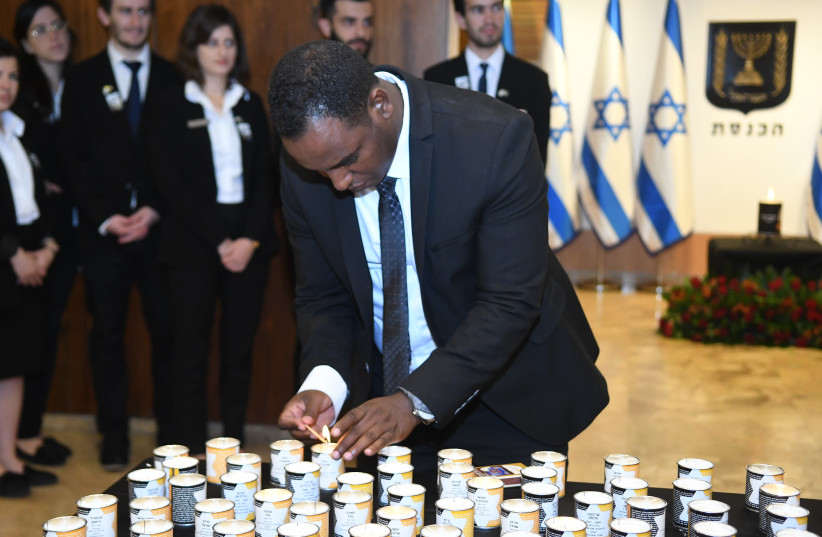The first stage of an Israeli humanitarian delegation to Ethiopia, a year and a half into the country’s civil war, was set to depart on Monday evening, led by Likud MK Gadi Yevarkan.
As many as 500,000 people have been killed in the Tigray War, some from the fighting, more from starvation and many from a lack of medical attention, Belgium’s Ghent University estimated in a report last month. Yevarkan also cited UN reports of over two million displaced and over nine million hungry in Ethiopia’s war-torn north.
The Likud MK said he began planning the mission months ago, before the war in Ukraine broke out and Israel became the only country to send a field hospital there.
“As someone who came to Israel from Ethiopia at age eight and a half, it is a great honor for me to be able to help,” Yevarkan said.
Yevarkan set out to help the millions without medical service in the war zone, holding a conference in the Knesset last month with over 80 representatives of Israel’s health funds, hospitals, universities, NGOs and others to determine how Israel could best help Ethiopia. The MK said that the authorities in Ethiopia preferred that the Israelis first come to coordinate before sending actual aid.

The delegation plans to meet with the Ethiopian prime minister, foreign minister, parliamentary speaker and legislators, as well as the administration of 10-15 hospitals and the University of Gondar to hear their needs. The delegation then plans to return to Israel and come back with an even larger group, as well as equipment.
Yevarkan led the delegation, which included Yesh Atid MK Vladimir Beliak and Labor MK Emilie Moatti, as well as representatives from Clalit Health Services and Tel Aviv University. The MK also called on US Jewish communities to help and said that Shalom Corps, an international Jewish volunteer group sponsored by the Jewish Agency and Diaspora Ministry, and the Society for International Development – Israel, plan to contribute.
The trip was supposed to be in the framework of an official Israeli parliamentary delegation, but is not due to the Foreign Ministry workers’ strike, leaving Yevarkan to do much of the coordinating on his own.
“Israel is a good friend of the Ethiopian people,” Ethiopia-born Yevarkan said hours before the trip. “Ethiopians are very supportive of Israel; they know Judaism came before Christianity, and they have towns named after biblical sites in Israel, like the Mount of Olives and Nazareth.”
Helping Ethiopia is “also in Israel’s interest,” the MK said, “because it is one of the most important countries in Africa, where the headquarters of the African Union is located. In Africa, Ethiopia represents independence and victory over the West.”
Yevarkan emphasized that the aid is meant to help both sides of the war, not to take one side, and that Israel will adopt hospitals in Tigray and Amhara.
“Tigray and Amhara, the areas of the war, are regions that Jews came from. It is important to preserve our holy places and our shared history,” he stated.
Yevarkan also pointed to more than 160,000 Ethiopian Jews in Israel, who welcome the aid initiative.
“It is important to send that message within Israel and abroad,” he said.
